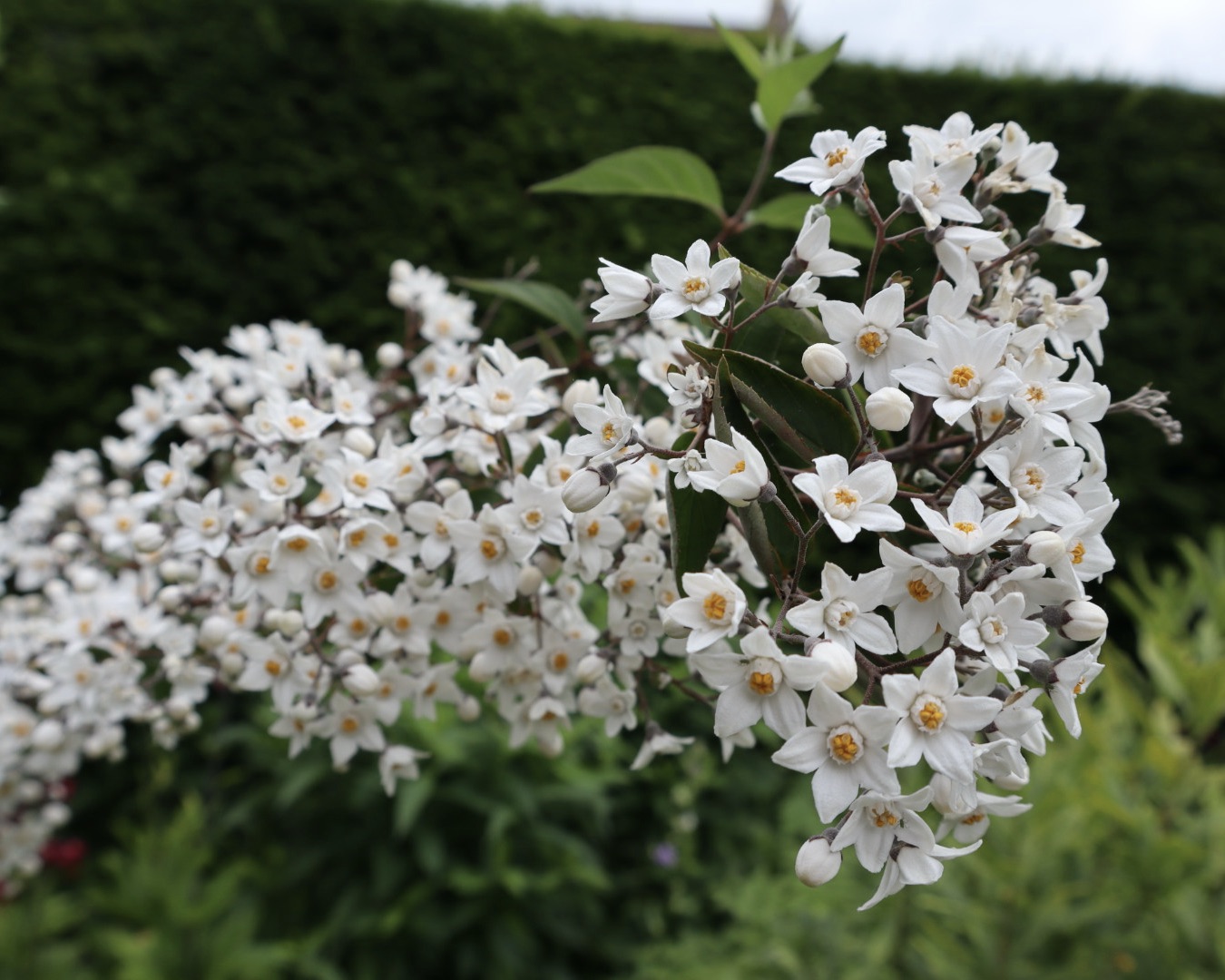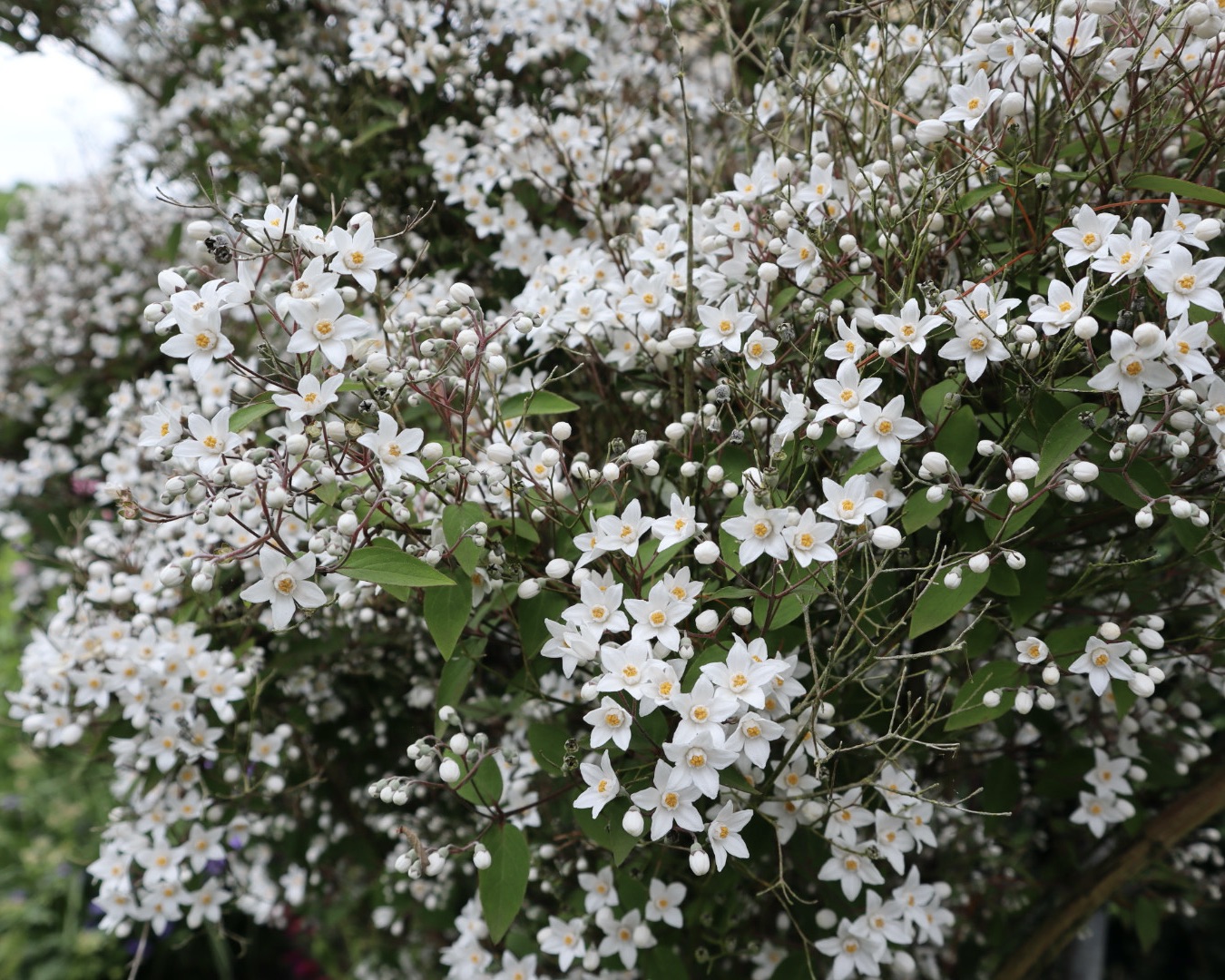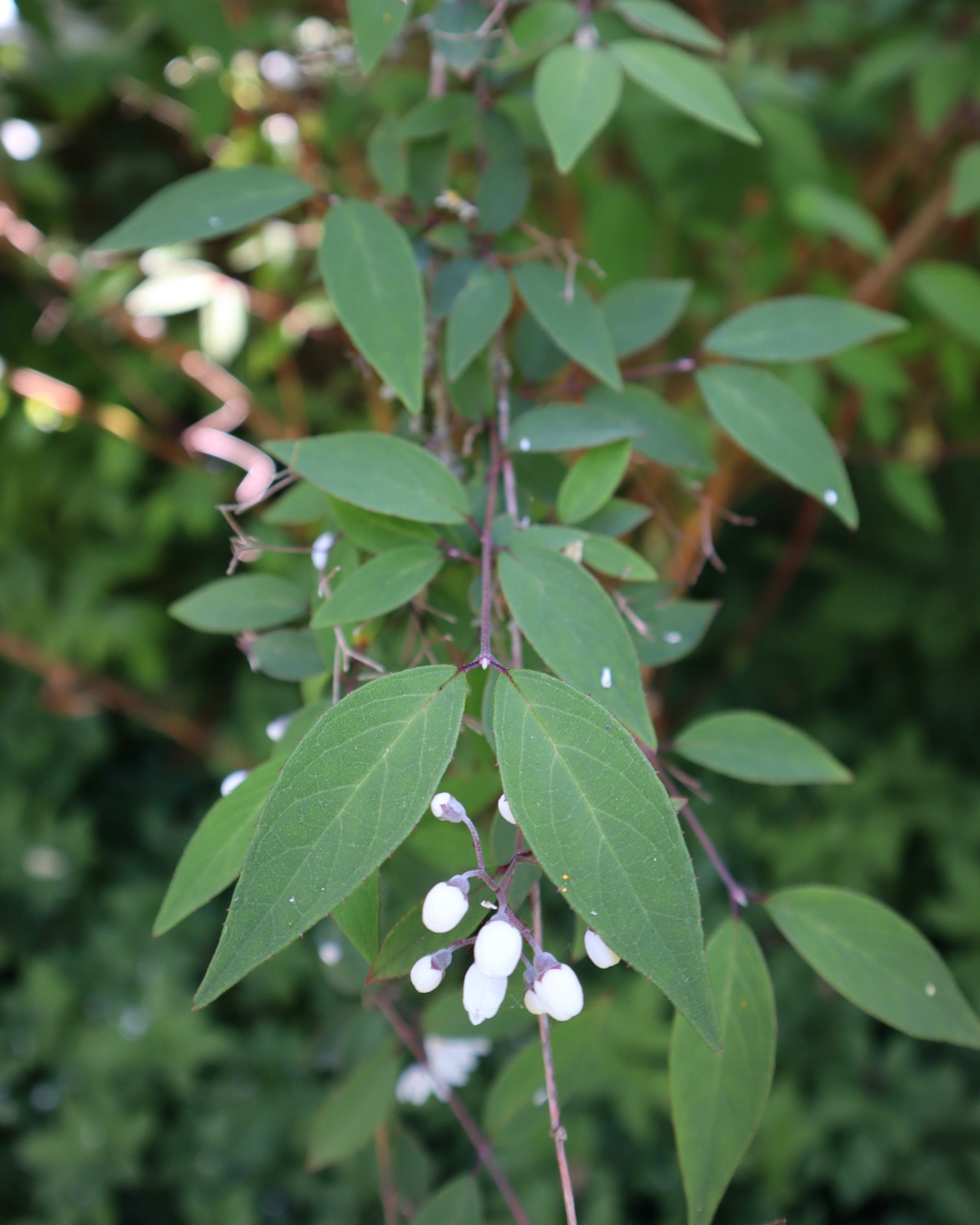Deutzia setchuenensis
Credits
Article from Bean's Trees and Shrubs Hardy in the British Isles
Recommended citation
'Deutzia setchuenensis' from the website Trees and Shrubs Online (treesandshrubsonline.
Genus
Infraspecifics
Other taxa in genus
- Deutzia amurensis
- Deutzia compacta
- Deutzia corymbosa
- Deutzia discolor
- Deutzia × elegantissima
- Deutzia glomeruliflora
- Deutzia gracilis
- Deutzia grandiflora
- Deutzia × hybrida
- Deutzia × lemoinei
- Deutzia longifolia
- Deutzia × magnifica
- Deutzia maximowicziana
- Deutzia mollis
- Deutzia monbeigii
- Deutzia pulchra
- Deutzia purpurascens
- Deutzia reflexa
- Deutzia rehderana
- Deutzia × rosea
- Deutzia rubens
- Deutzia scabra
- Deutzia schneiderana
- Deutzia sieboldiana
- Deutzia staminea
- Deutzia taiwanensis
- Deutzia vilmoriniae
- Deutzia wilsonii
This species is mainly represented in cultivation by the following variety, which is greatly superior to the type as a garden plant:
var. corymbiflora (Lemoine) Rehd.
Synonyms
D. corymbiflora Lemoine
A shrub up to 6 ft high, of graceful habit; young shoots covered with loose hairs, rather rough, glossy the first year, brown the second year, finally peeling. Leaves oval-lanceolate, rounded at the base, taper-pointed, finely toothed, 1{1/2} to 4{1/2} in. long, {5/8} to 1{1/2} in. wide, dull green and rough with minute starry hairs above, grey and more densely covered with similar hairs beneath; stalk {1/4} to {3/8} in. long. Flowers white, about {5/8} in. across, produced in June and July in corymbs 3 or 4 in. across. Petals ovate, clothed with minute starry down outside; calyx-lobes triangular, persistent, they and the flower-stalks grey-felted. The wings of the longer stamens terminate at the top in two prominent teeth; the shorter stamens have several smaller teeth. Bot. Mag., t. 8255.A native of Szechwan and Hupeh, China; introduced to France in 1895 and put into commerce by Lemoine two years later as “D. corymbiflora”. It is likely to be a failure in gardens subject to late spring frosts and may suffer winter-damage through inadequate ripening of the wood in the cooler and rainier parts of the country. But given the right conditions there are few more beautiful summer-flowering shrubs than this. The small, starlike flowers of a dazzling whiteness are borne one to three hundred together in branched clusters and open successively over a period of two months from June onward. It thrives in chalky soils.Typical D. setchuenensis was introduced from the same area at the same time and distributed by Lemoine as “D. corymbiflora erecta”. It is inferior to the var. corymbiflora as a garden plant owing to its smaller corymbs; botanically it differs from it in the smaller, narrower leaves and certain other minor characters.D. × myriantha Lemoine, is a beautiful hybrid between D. setchuenensis and D. parviflora. Flowers pure white, very numerous in large corymbs, hardier than the first parent.



